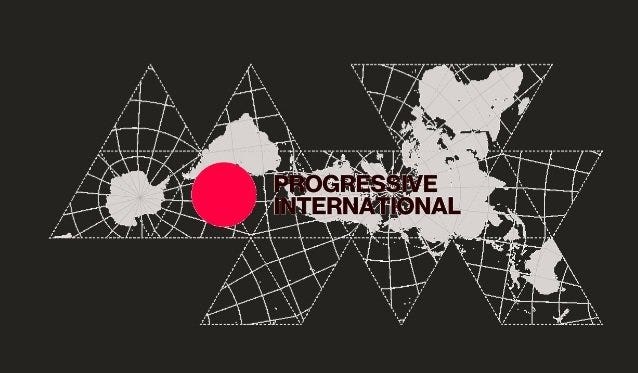PART 1
Julian Assange will appear at the High Court in London to appeal his extradition to the US, after being held in the Belmarsh prison for five years. If he loses his appeal, he’ll be incarcerated in a high-security prison in the US, waiting to be tried.
Assange exposed the US government’s war crimes, corruption and misconduct in Iraq and Afghanistan. He now faces 175 years in prison under the Espionage Act, which for the first time is being employed to bring charges against a journalist and publisher who is not a US citizen and whose publications appeared in the UK.
This prosecution represents an extraordinary breach of protected speech, infringing upon the freedom of expression outlined in Article 10 of the European Convention on Human Rights (ECHR). In his testimony at the Belmarsh Tribunal in Washington, DC, American Civil Liberties Union (ACLU) lawyer Ben Wizner asked, 'Does this [Biden] administration want to be the first to establish the global precedent that countries can demand the extradition of foreign reporters and publishers for violating their own laws?.'
Moreover, the US has stated that Assange would be denied free speech protections during the trial on the grounds that he is not a US citizen, prejudicing his position as a defendant. Therefore, if extradited to a federal court in the US, Assange’s lawyers would have limited defense, while incarceration in a high-security prison in the US is akin to a death sentence.
Persecuting Assange for his courage to expose war crimes is a grave miscarriage of justice and a threat to freedom of the press, dinstituting a dangerous model for the treatment of journalists and publishers.
No press is free, until Assange is free.
In solidarity,
The Progressive International Secretariat
Also to VISIT: Caitlin Johnstone website; John Pilger, The betrayal of Assange; counterpunch; theconversation and johnmenadue site: including Assange must be allowed to return to Australia; also, John Mearsheirmer on behalf of John Assange.
PART 2
As Western powers fuel a genocide in Gaza that has killed scores of journalists and crushed press freedom across Palestine, journalism itself was put on trial this week.
On Tuesday and Wednesday, the London High Court sat to hear Julian Assange’s extradition case to the United States. One of the two judges, Justice Jeremy Johnson has been specially vetted by the UK authorities to access top secret information and has represented the UK’s MI6 spy agency and Ministry of Defence.
If extradited, Assange faces 175 years in a supermax prison. His only crime: Wikileaks’ revelation of Western war crimes in Afghanistan, Iraq, and beyond. The High Court’s ruling will not only decide Assange’s freedom. It will also determine the right to know what our governments do in our name. Assange is not on trial alone.
Journalism itself is on trial.
On Tuesday, Assange’s defence spoke for his freedom, our right to know and journalists’ right to free speech. They argued that not only is Assange already gravely ill from five years in Belmarsh prison — he broke a rib from just coughing in December and was too sick to attend court even by video link — but he cannot receive a fair trial in the US, given that the CIA planned to assassinate him.
The US case against Assange is, in essence, political. His crusading journalism revealed their crimes and embarrassed their three letter agencies. That’s why he is the first journalist in history to be charged under the US Espionage Act. This alone should nullify the extradition case; political offences are exempt from extradition under the relevant US-UK treaty.
Ironically, given journalism itself was on trial, access to follow proceedings by journalists was extremely restricted. First, access to the live stream was only available to journalists in England and Wales — and then the audio for the live stream was broken. Second, those journalists who made it into the High Court itself had to make do with a “gallery with no tables to take notes or use computers” where they could not “hear or watch the hearing properly at all,” according to Italian journalist Stefania Maurizi.
The hearing ended without a judgement, for which we will likely have to wait weeks. In the meantime, the campaign for Assange’s freedom grows.
The outside of the Court played host to large protests and a throng of international media, where several PI figures and members of the Belmarsh Tribunal spoke to both protestors and media. The speakers, much as the Belmarsh Tribunal has done, described how Julian Assange’s freedom represents freedom of the press, which represents opposition to the war machine.
The Progressive International will fight until it has been dismantled.
In solidarity,
The Progressive International Secretariat
Publications posted during the week:
2] India nowadays doubts America's reliability
3] Extermination Expulsion Extirpation
4] Globalisation of monopoly-finance capital
5] MOMENTUM and FRIDAY FILES
Thank you for revisiting this site.
Kindly circulate this magazine among your peers.
in solidarity,



